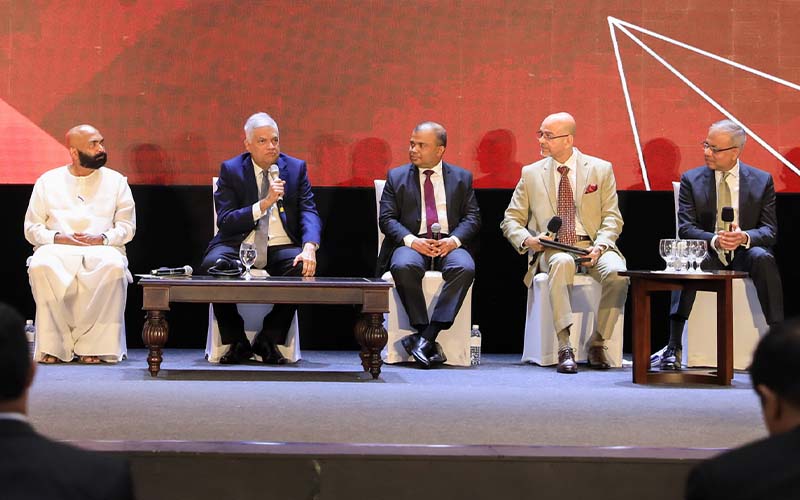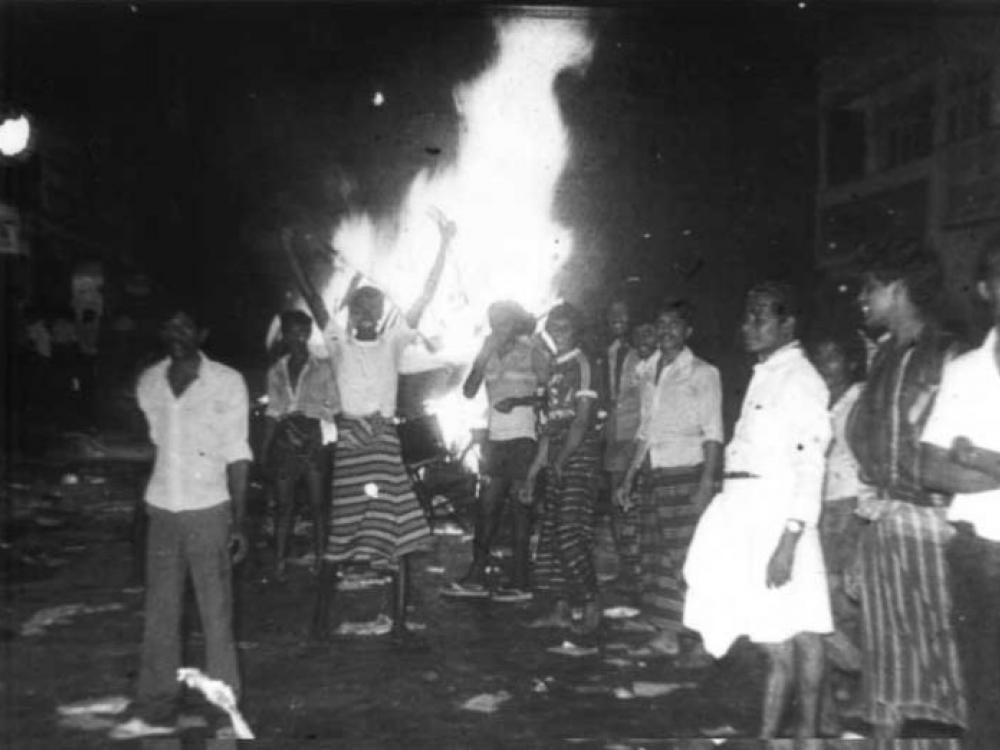
Speaking at an economics conference, hosted by the Institute of Chartered Accountants of Sri Lanka, Sri Lanka’s president claimed that the ethnic issue was one of the biggest issues holding back the island’s development.
“We must remember that one of the biggest issues that held back our growth is the ethnic issue. We have to think as Sri Lankans. We cannot divorce that issue from the economic issues” Sri Lankan President Ranil Wickremesinghe claimed.
The conference, entitled “Economic Dialogue – IMF and Beyond’, was held at the Galle Face Hotel in Colombo on Thursday and attended by senior members of the Sri Lankan cabinet, members of Sri Lanka’s parliament and leaders of business and industry.
A warped history
In his keynote address, Wickremesinghe lamented the island’s trajectory and asserted that there were key failures to properly implement the proposals of former Prime Minister D.S Senanayake, who had set out a vision for self-sufficiency, as well as the vision of Wickremesinghe’s uncle, and the first executive president, J.R. Jayawardena.

In describing Jayawardena’s controversial record, which oversaw the Black July anti-Tamil pogroms, Wickremesinghe expressed his regret that the process of liberalising the economy did not go further.
“We had to slow down because of the ethnic situation and the conflict that broke out in the country”, Wickremesinghe claimed.
Jayawardene’s administration experienced a bubble of growth as he implemented sweeping liberalisation reforms that saw the removal of import controls, elimination of subsidies on food and petrol, and deregulated foreign trade. In response to these reforms, Sri Lanka witnessed a boom in western investment however this did not last and saw a staggering growth in inequality and the suppression of the island’s trade unions. Jayawardene also pursued discriminatory policies targeted towards Tamils and the island witnessed a series of anti-Tamil pogroms.
Omitting this history, Wickremesinghe then laments that after 1994, which saw the Kumaratunga administration, that a greater focus was paid to “resolving the ethnic issue at the expense of the economic development”.
Read more here: Remembering Black July
Addressing the ethnic issue
![]()
Wickremesinghe’s claim to want to address the ethnic issue comes as he has proposed reviving the long unimplemented 13th amendment. The proposal has garnered much anger from Sinhala Buddhist nationalists who have accused the head of state of betraying the country.
However, Tamil politicians across the aisle have been left unswayed. His claim follows a breakdown of discussions with the Tamil National Alliance. Commenting on the matter, TNA politician MA Sumanthiran noted:
“Sri Lanka’s failure to fully implement the amendment is a reminder of the Sinhalese establishment’s apparent insecurity over sharing power”.
Whilst the TNA, amongst other Tamil political parties, engaged in discussions with the government they faced heavy backlash from the Families of the Disappeared and Tamil civil society organisations who stressed the government’s unwillingness to meet Tamil demands and urged for an appeal to the international community.
The Tamil National People’s Front (TNPF) have rejected the 13th amendment and instead is calling for a federal solution.
Suppression of protesters

Wickremesinghe’s speech comes as he negotiates support from the US-based IMF for the bankrupt island and will likely impose a strict regiment of austerity. Responding to anti-strike regulations and controversial tax reforms, that would target the middle class, there has been a series of mass protests in Sri Lanka. Police have responded to these demonstrations through brutal crackdowns.
Wickremesinghe disparaged the protesters as “violent extremists” whilst claiming to have sympathy initially for the Aragalaya.
“We have to discuss and debate these issues and the discussion must take place in the halls of discussion from Parliament downwards, not in the streets. That type of agitation is no longer suitable for a country that goes on to development” he asserted.
He further asserted:
“We must not look at the Government to bail everything out. We cannot look at the Government as the ultimate provider of solutions to issues that cannot be resolved by the market”.
Read more here.
We need your support
Sri Lanka is one of the most dangerous places in the world to be a journalist. Tamil journalists are particularly at threat, with at least 41 media workers known to have been killed by the Sri Lankan state or its paramilitaries during and after the armed conflict.
Despite the risks, our team on the ground remain committed to providing detailed and accurate reporting of developments in the Tamil homeland, across the island and around the world, as well as providing expert analysis and insight from the Tamil point of view
We need your support in keeping our journalism going. Support our work today.
For more ways to donate visit https://donate.tamilguardian.com.

